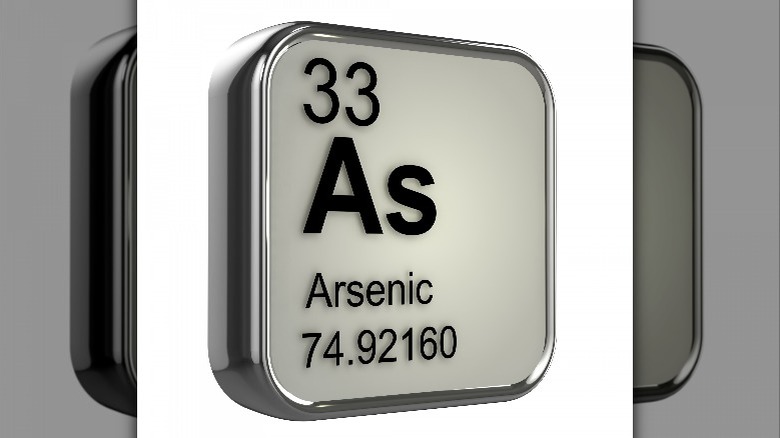What You Should Know About Arsenic In Food
An FDA recall in October this year was put out due to the presence of unsafe levels of arsenic in rice-based baby cereal (as seen in some baby food sold at Walmart). This put a renewed spotlight on naturally occurring elements in our food supply that may, in sufficient quantities, trigger serious health concerns. While this may not be the absolute worst food recall of all time, it is concerning. In this case — the second arsenic-related recall in 2021, following a June incident (via CNN) — the elevated arsenic levels were discovered during routine sample testing conducted by the FDA.
Consumer Reports had lobbied the FDA for eight years before the agency established a mandate about arsenic levels in food in 2020. Throughout its efforts, Consumer Reports was especially concerned about tainted rice-based baby cereals. But arsenic is naturally present, sometimes in concerning levels, in a wide range of food products including apple juice. According to Consumer Reports, since 2013 the FDA has been sitting on a proposal to limit the acceptable level of arsenic in apple juice to 10 parts per billion, the same standard applied to drinking water.
Why is arsenic in a food an issue?
The Dartmouth Toxic Metals Superfund Research Program identifies arsenic in our food supply as particularly concerning because humans can't detect its presence — we can't see it; we can't taste it; we can't smell it. It's a naturally occurring substance most of us consume in trace amounts on a daily basis, but above a certain level or over an extended period of time, intake can lead to increased risk for health issues and diseases including cancer and diabetes. Even some cases of heart disease can be traced to arsenic consumption.
The good news is that you can take simple measures to minimize exposure. The Dartmouth Toxic Metals Superfund Research Program advises that those with private water wells have their water supply tested regularly. Because rice easily absorbs metals, including arsenic, from the ground, consider limiting your consumption of rice and rice-based products.
In the meantime, per Consumer Reports, the FDA continues to work with the U.S. food industry to minimize the risk of exposure by taking measures including regulating the use of pesticides with arsenic in agricultural areas and banning arsenic in the production of pressure-treated wood. If you're concerned about exposure, check out the FDA's guidelines here.

